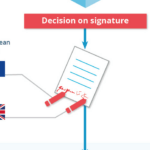This paper reports on the impact of the 2015 Principles on Choice of Law in International Commercial Contracts 2015 and on the advocacy work undertaken by the Permanent Bureau (PB) over the past year.
It presents the influence of the 2015 Principles on the reform of national laws in the area of choice of law, as well as their practical relevance in the resolution of contractual disputes before national courts (Section II). In addition, it sets out the work done in the continued promotion of the 2015 Principles in both commercial litigation and arbitration (Section III). The final section proposes possible work to be undertaken by the PP in the area of choice of law in international commercial contracts, in order to improve legal certainty and predictability in international trade and business.
The 2015 Principles continue to prove influential in modernising national choice of law rules for contracts. Their use and practical relevance in the resolution of transnational commercial disputes are recognised in the fields of litigation and arbitration.
A. Legislative reform
The 2015 Principles continue to be used as a model or inspiration for the modernisation of national laws. In addition to Paraguay and Uruguay, 1 the 2015 Principles have now been considered by Mozambique in its ongoing reform of the Law on International Commercial Contracts.
B. Case law
Recent court proceedings have referred to the 2015 Principles as an instrument reflecting contemporary global practice, and providing increasing protection for consumers by excluding consumer contracts from the scope of choice of law due to discrepancies in bargaining powers between the parties.
C. Arbitration survey
Since 2019, the PB conducts an annual survey to assess the impact of the 2015 Principles on arbitration proceedings. This survey, which is part of the advocacy efforts within the arbitral community, is generating positive results.
In the second survey, conducted in 2021, there were twice as many responses compared to those received for the 2020 survey. Sixteen arbitral institutions from 15 jurisdictions and based in four different continents responded that they had incorporated the 2015 Principles into their own institutional rules or had advertised or facilitated their use in other ways. A “Status Chart”, which compiles the responses received, aims to provide information on arbitral institutions and their rules that respect and interpret choice of law in accordance with the 2015 Principles for the benefit of parties in selecting an arbitral institution.
For the third survey, which is conducted by 2022, the PP goes further and explores practice in relation to the applicable law in the absence of a (valid) choice of law by the parties in arbitration proceedings. In particular, it investigates any methods or approaches employed by arbitral institutions or trends developed in the treatment of international commercial contractual disputes in the absence of a choice of law by the parties. The outcome of the 2022 survey could help to put these issues in perspective, and further highlight the need to respect party autonomy in the choice of law. As such, the survey will reiterate the importance of the 2015 Principles in transnational business transactions.
The PP continued to undertake advocacy work aimed at raising awareness of the 2015 Principles and encouraging their wide use by various stakeholders, including the global legal and business communities and academia.
Proposal for the CGAP
Given the importance of ensuring legal certainty and predictability of the law applicable to international commercial contracts, and building on the interest raised by the PP’s promotion of the 2015 Principles, as well as the upcoming 2022 Trade and Finance Law Conference, the PP proposes for consideration by CGAP the following, taking into account the resources available and the priorities to be addressed by the PB Transnational Litigation Team:
- take note of the efforts made by the PB in promoting the 2015 Principles
- mandate the PB to assess, in cooperation with other relevant institutions, the acceptance and interpretation of Article 3 of the 2015 Principles, regarding the possibility for parties to
choose legal rules or non-state law as the law governing international commercial contracts and, subject to available resources, report back to CGAP in 2023
The 2015 Principles, the first “soft law” instrument of the HCCH, are designed to promote party autonomy in international commercial contracts. While reinforcing the concept of party autonomy, they also set well-defined boundaries, thus refining and balancing the concept.
They 2015 Principles provide a comprehensive blueprint for users to create, reform or interpret choice of law regimes at the national, regional or international level. They have served as an inspiration and model for the development of national or regional laws on international commercial contracts.
They have been adopted by international organisations that aim to harmonise law or promote cross-border business, such as UNCITRAL, the International Chamber of Commerce and the Inter-American Juridical Committee of the OAS.
Want to know more? See HCCH Preliminary Document 9 (CGAP 2022).
Join us at CODIFI! On line, 12-16 September 2022
More information: HCCH CODIFI CONFERENCE







Leave a Reply